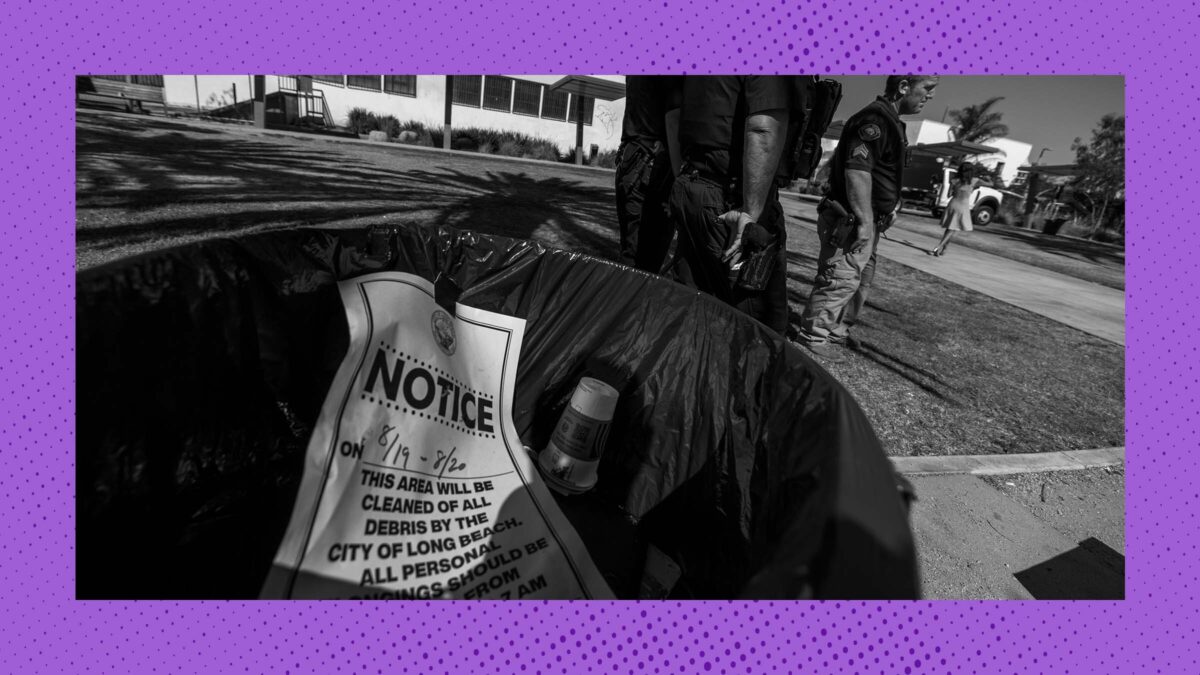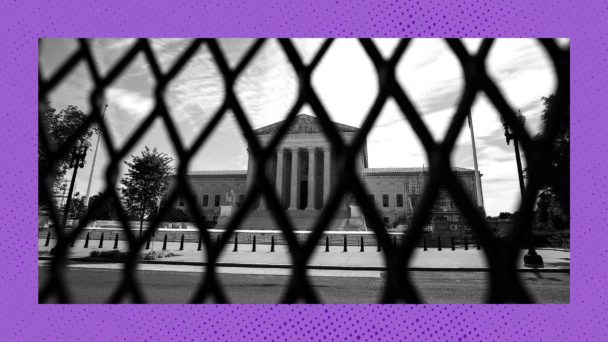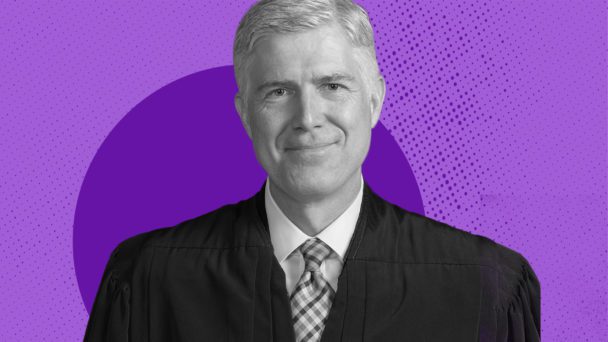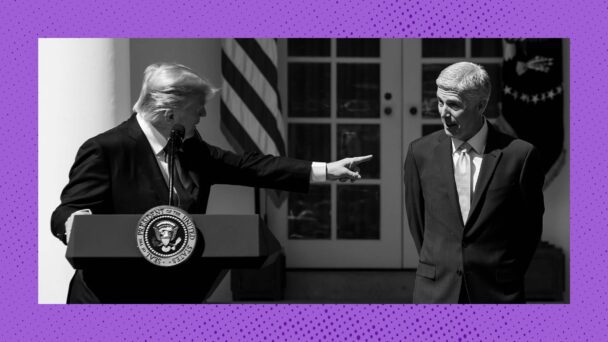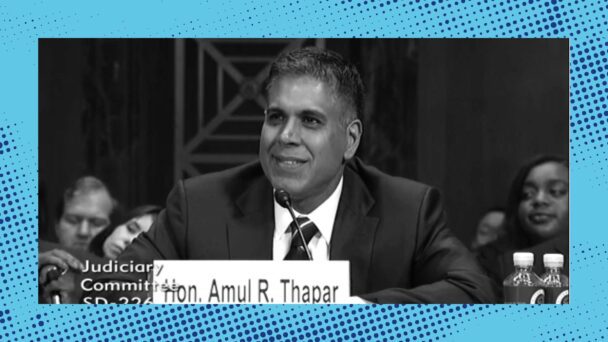Each year, on a single night in January, the U.S. Department of Housing and Urban Development (HUD) counts the number of people living in shelters, temporary housing, and unsheltered settings like in cars or on sidewalks. HUD released the results of its 2024 assessment about a week ago: Over 770,000 people were experiencing homelessness during the last week of January last year. This is up 18 percent from the 2023 count, which was upwards of 650,000 people—and, at the time, a record high.
The report comes with a big qualifier: HUD’s press release reminds readers that the data was collected a year ago so the report “likely does not represent current circumstances, given changed policies and conditions.” One significant factor the report doesn’t account for is the U.S. Supreme Court. When HUD takes its annual snapshot of the unhoused population later this month, it will be the first point-in-time count since the Court issued its ruling in City of Grants Pass v. Johnson in June—an inhumane decision on the rights of homeless people.
The city of Grants Pass, Oregon, is one of many local governments on the West Coast that in recent years passed “anti-camping” laws in response to the nation’s worsening homelessness crisis. The city’s ordinance outlaws parking overnight in city parks and bans people from setting up or remaining at campsites. But it defines campsites very broadly, including any public place with “camping materials” like tents or sleeping bags.
In case there was any doubt that the “camps” in question were homeless encampments, the ordinance also prohibits sleeping “on public sidewalks, streets, or alleyways.” People who violate the law can be fined hundreds of dollars, ordered to stay off all city property, and jailed. During a 2013 community roundtable on the city’s “vagrancy problem,” the Grants Pass city council president said that “the point is to make it uncomfortable enough for them in our city so they will want to move on down the road.”
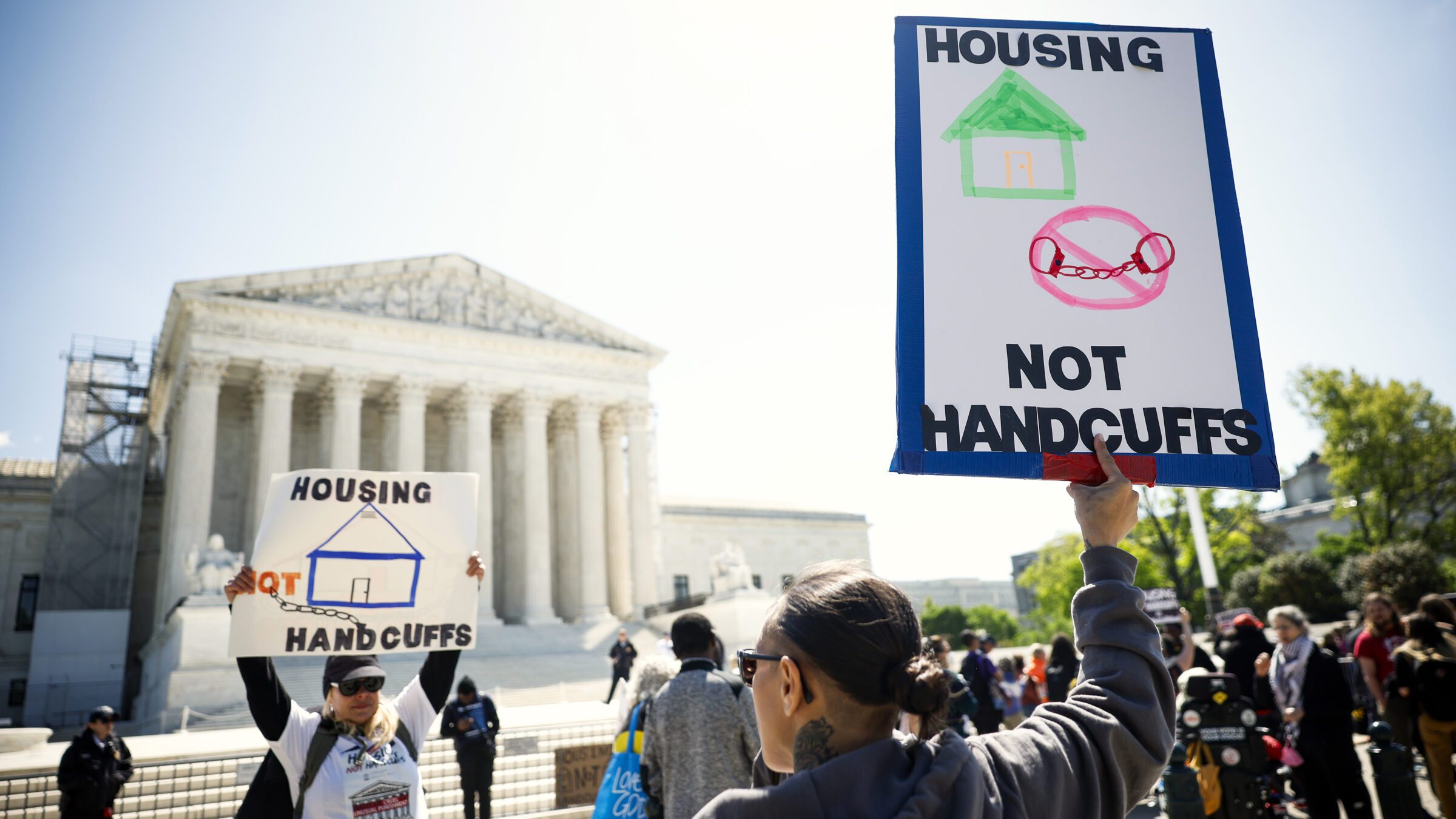
(Photo by Kevin Dietsch/Getty Images)
The city’s unhoused community and allied activists argued that the law violated the Eighth Amendment prohibition on cruel and unusual punishment by basically punishing homeless people for being homeless people. The Ninth Circuit Court of Appeals agreed, reaffirming the principle that “a person cannot be prosecuted for involuntary conduct if it is an unavoidable consequence of one’s status.” The Ninth Circuit recognized that the ordinance banned people from “engaging in activity they cannot avoid,” since people with nowhere else to go were precluded “from using a blanket, a pillow, or a cardboard box for protection from the elements while sleeping within the City’s limits.”
But the conservative supermajority on the Supreme Court saw things differently, determining that the law did not violate the Eighth Amendment because it targeted a person’s conduct—not their status—and because fines, exclusionary orders, and jail time are normal punishments for criminalized conduct. Justice Neil Gorsuch wrote for the six Republican appointees that “it makes no difference” under the law whether the charged defendant is homeless, a student protester, or a “backpacker on vacation passing through town.” In other words, the ordinance gives any person sleeping outside for any reason an equal opportunity to be fined and imprisoned.
This jaw-dropping assertion literally reads almost exactly like an excruciatingly ironic line from a 130-year-old novel: “The law, in its majestic equality, forbids the rich as well as the poor to sleep under bridges, to beg in the streets, and to steal bread.” The inescapable conclusion of the Court’s ruling is that there is no constitutional problem with criminalizing homelessness. The data HUD collects this month—and will release about a year from now—may be the first opportunity to assess the nationwide consequences of the Court turning 19th-century satire into the law of the land.
Elected officials quickly identified Grants Pass as a grant of permission to local governments to crack down on people forced by circumstance to sleep outside. In the immediate aftermath of the Court’s ruling, California Governor Gavin Newsom ordered state officials to dismantle homeless encampments across the state. Several Minnesota towns were inspired to pass their own new “anti-camping” laws. In Washington, multiple cities modified bans they already had, removing requirements that people be offered shelter before their encampments are cleared, making homeless people immediately vulnerable to fines and jail time.
At the time, advocates like the National Alliance to End Homelessness argued that Grants Pass would do nothing to address the affordable housing shortage that drives the homelessness crisis. HUD’s 2024 assessment also identified the nationwide housing shortage as a significant factor contributing to the highest number of people experiencing homelessness ever recorded. Regrettably, the legal system has no shortage of punitiveness and cruelty. Supreme Court decisions like Grants Pass made sure of that.
